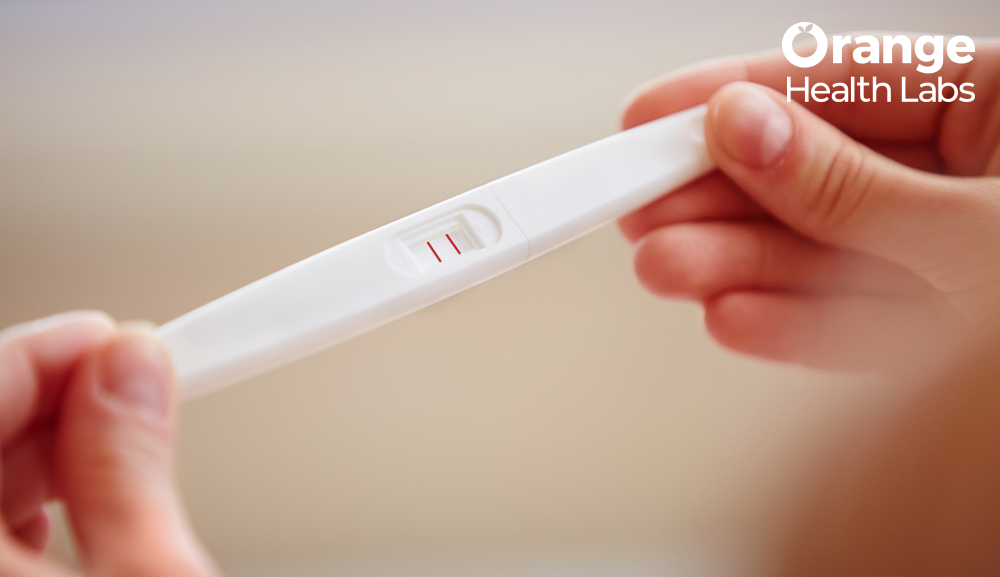Search for tests or checkups
SupportBlood Culture vs Widal Test – Which One to Choose for Typhoid Diagnosis?
Typhoid fever is a major health concern, especially in areas with poor sanitation and limited access to clean water. Early diagnosis is essential for effective treatment and preventing complications. The two main diagnostic tests for typhoid fever are the blood culture test and the Widal test. If you are in Bangalore and suspect you have typhoid, identifying the appropriate test you need—blood culture or Widal Test (Slide Method) in Bangalore—is crucial for effective health management. Let’s compare these easily accessible tests, available through various diagnostic services, to help you make an informed decision for diagnosing typhoid.
Diagnosing Typhoid Fever
The bacterium Salmonella typhi, which causes typhoid fever, is primarily transmitted through contaminated food and water. The most common symptoms of typhoid include prolonged fever, abdominal pain, fatigue, and either diarrhea or constipation. Since these symptoms can overlap with other infections, confirming typhoid with a reliable diagnostic test is essential.
Typhoid is often suspected when an individual experiences fever for at least 3 out of 7 days, particularly if they have recently traveled to a region where typhoid is common or have been in close contact with someone diagnosed with typhoid.
Several diagnostic methods are available to confirm typhoid fever, including blood culture, the Widal test, stool culture, and molecular tests. While all these tests can detect the infection, their effectiveness varies, with blood culture and Widal test being the most commonly used tests. Let us explore these tests in detail to understand their utility, strengths, and limitations.
Blood Culture Test for Typhoid
A blood culture test is considered the gold standard for diagnosing typhoid. This test directly detects the presence of S. typhi in the bloodstream.
Procedure
The procedure involves drawing a blood sample, which is placed in a culture medium that promotes bacterial growth. If S. typhi is present, the bacteria will multiply, confirming the infection.
Accuracy and Reliability
The blood culture test is most reliable in the first week of illness when bacteria levels in the blood are higher. However, in cases with low bacterial numbers, the test may fail to detect them, as observed in about 40-60% of cases, and may take up to 7 days to confirm a negative result. The accuracy of test results is higher (>90%) in travelers.
Time Taken for Results
You can expect your test results in about 1 to 2 days.
Widal Test for Typhoid
The Widal test identifies the presence of specific antibodies against antigens on the S. typhi bacteria in a patient's blood. Antigens are usually proteins located on the surface of bacteria. The body recognizes them as harmful and produces antibodies to combat them.
There are two primary methods for performing the Widal test:
- Tube Test: This traditional method involves mixing a patient's blood sample with varying concentrations of antigen solutions. The goal is to determine the level of antibodies present by observing the reaction at different concentrations. Although this method is thorough and accurate, it is time-consuming.
- Slide Test: This is a faster, more convenient method, commonly used in diagnostic facilities. A small drop of the patient's serum is placed on a glass slide and mixed with an antigen solution. If the antibodies against typhoid are present, the mixture will produce a visible reaction, such as clumping or a color change. While the slide test provides results within a few hours, it may not be as precise as the tube test.
Both methods are essential for diagnosing typhoid fever, each offering distinct advantages in different clinical settings. For those looking for a convenient option, the Widal Test (Slide Method) at home provides a quick way to detect typhoid fever.
Accuracy and Reliability
The Widal test is the most utilized diagnostic test for typhoid fever; however, its results show variable accuracy. Its sensitivity (ability to detect the disease) ranges from 53% to 92%. Similarly, its specificity (ability to rule out the disease) ranges from 57.5% to 100% with a potential for false positives, especially in areas with high typhoid prevalence or in individuals with past infections or vaccinations.
Time Taken for Results
The time to get results depends on the method used. The rapid slide test provides results within a few hours, while the tube test takes longer due to more detailed processing.
Which Test to Choose for Typhoid Diagnosis?
When choosing a diagnostic method, several factors should be taken into account:
- The Urgency of Diagnosis: If results are needed quickly, the Widal test offers quicker results. However, blood culture is more reliable for confirmation.
- Resource Availability: In settings with limited resources, the Widal test is more accessible due to its affordability, while the blood culture test requires specialized equipment and trained personnel.
- Cost: The blood culture test is more expensive and may need to be repeated if results are inconclusive, whereas the Widal Test (Slide Method) cost is lower, making it a more economical option in low-resource settings.
Therefore, both tests are important in diagnosing typhoid fever, but the choice of test depends on the urgency, available resources, and the need for accuracy, especially in critical cases.
In conclusion, the blood culture and Widal tests are valuable tools for diagnosing typhoid fever, but their benefits differ based on patient requirements. The blood culture test offers high specificity and accuracy, especially for early detection, but is more expensive and slower. The Widal test provides quicker, more affordable results but may lack accuracy in some cases. Choosing the right test depends on factors like urgency, resource availability, and the need for precise diagnosis.

Interpreting Positive Beta HCG Test Results: Significance in Pregnancy Detection

The Impact of Stress on Health: Insights From Full Body Checkups
